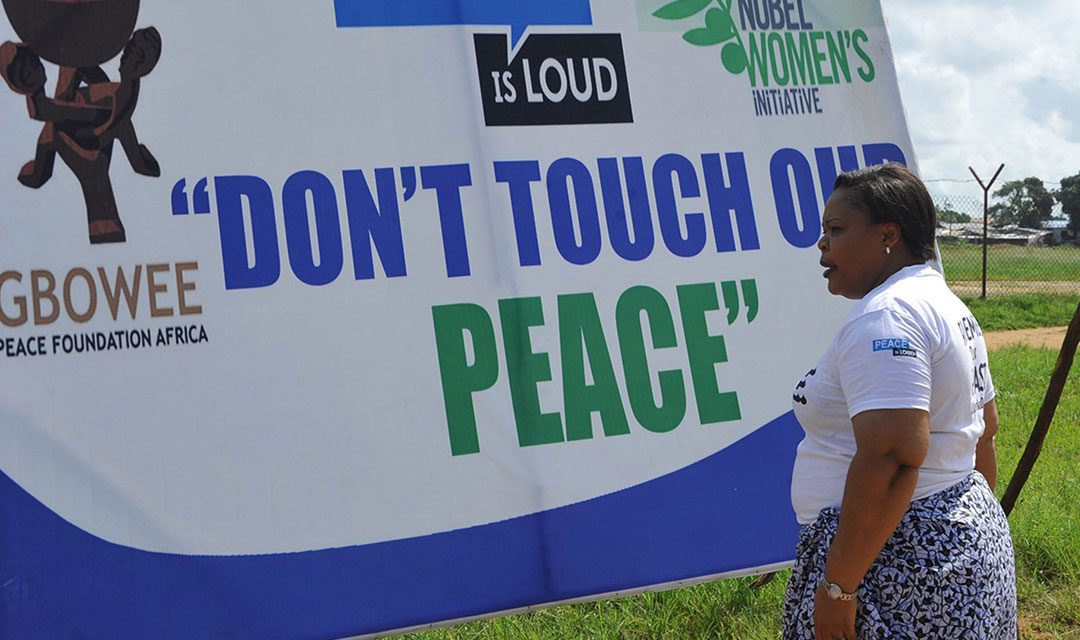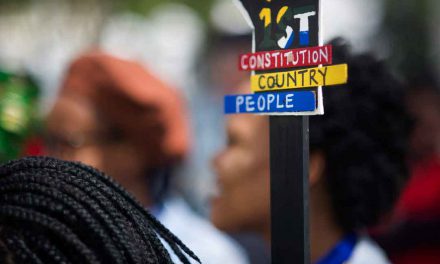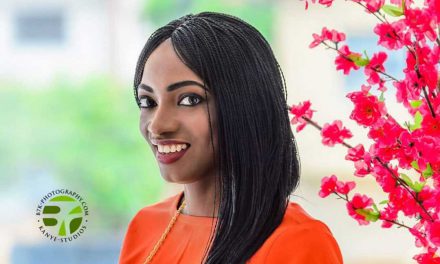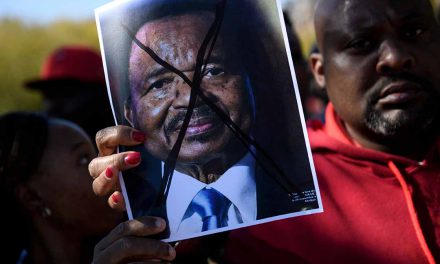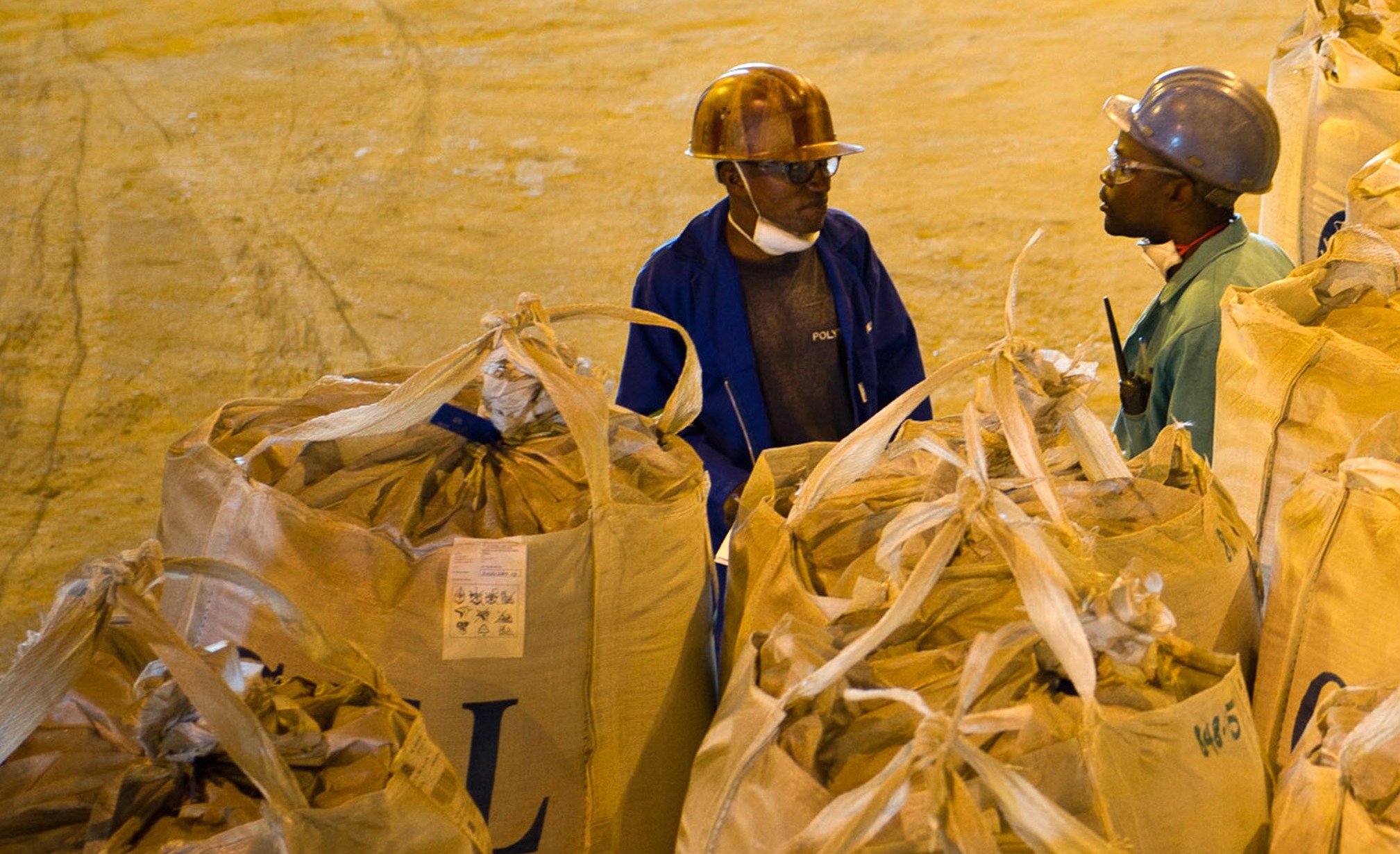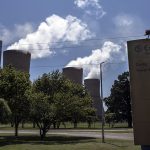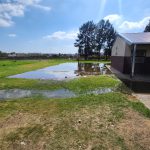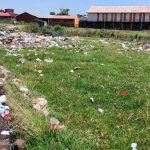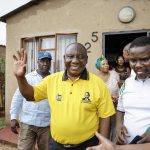SDG 16: Peace, justice and inclusive societies
Liberian civil society is working to build peace, justice and inclusivity
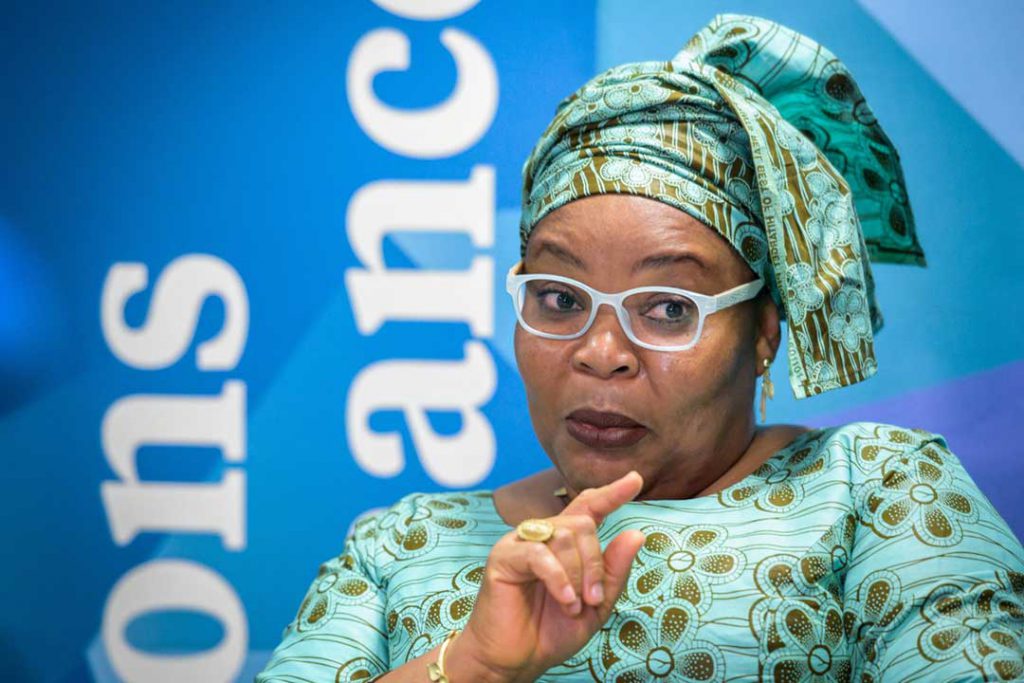
Liberian peace activist and 2011 Nobel Peace Prize winner Leymah Gbowee answers questions during an interview with Agence France-Presse in Geneva on September 30, 2019. Fabrice COFFRINI / AFP
By Lesley Connolly
In 2015, as the Millennium Development Goals (MDGs) era came to a conclusion, world leaders gathered at the UN to adopt the 2030 Agenda for Sustainable Development and composed 17 global goals to be achieved by 2030. The agenda builds on the MDGs with one new addition – Sustainable Development Goal (SDG) 16 – which aims to “promote peaceful and inclusive societies for sustainable development, provide access to justice for all and build effective, accountable and inclusive institutions at all levels”. The goal includes 10 targets, including a reduction in all forms of violence and related deaths everywhere, the promotion of the rule of law at national and international levels to ensure equal access to justice, ensuring public access to information and protecting fundamental freedoms according to national legislation and international agreements. As part of their reporting on the 2030 Agenda, countries are expected to voluntarily review implementation of specific goals each year and present outcomes at the High-level Political Forum, which is held each year in New York. In July 2019, at the fourth High Level Political Forum, 51 member states will review SDG 16 for the first time. The event will build up to the SDG summit in September this year, at which leaders will conduct the first four-yearly review of all 17 SDGs and decide on commitments to be delivered upon in the next review cycle. While the inclusion of SDG 16 demonstrates important progress in understanding international peace and the growing nature of conflict, violence and suffering globally, progress measurement is proving a major challenge.
However, without an effective show on the progress on SDG 16 there is a risk of a narrowing focus around the issues of the rule of law and justice, rather than focusing on the wide range of factors involved in achieving peaceful societies. It will be vital to demonstrate progress and results, mobilise actions to accelerate implementation, build the movement for peaceful, just and inclusive societies, and consolidate links to all 17 SDGs in the buildup to July 2019, at the forum itself and the subsequent SDG summit. This article will show how SDG 16 is being implemented in a country context by focusing on the work done by Liberian civil society organisations to build a peaceful, just and inclusive society, and thus make progress towards the implementation of SDG 16. Liberia is currently a country in transition. On 22 January, 2018, President George Weah was sworn in as Liberia’s new president, replacing then President Ellen Johnson-Sirleaf. This was the “first handover of presidential power following an inclusive and competitive election since Liberia’s establishment as a republic in 1847”, according to a 2016 special report by the UN Secretary-General on the organisation’s mission in Liberia. While the new government is working to implement a newly completed national development plan, civil society in Liberia is working to sustain the peaceful gains of the past and, directly or indirectly, to achieve the SDG 16 targets. These initiatives include innovative practices aimed at meeting the targets.In a post-conflict context, Liberian civil society has created a number of peacebuilding mechanisms that have contributed to stability in the country, upholding the peace and preventing the outbreak of violence (SDG 16.1).
In the build-up to the 2017 elections, the West African Network for Peacebuilding (WANEP) Liberia, active in Liberia since 1998, established the Election Situation Room as part of the Liberia Elections Early Warning and Response Group, supported by the UN and the government of Liberia. This platform is part of the WARN system managed by WANEP and operational throughout the West Africa region, which monitors the socio-political situation and feeds information quickly to Economic Community of West African States (ECOWAS) and other policymakers for response. Using this system, community members can safely and anonymously identify and report on conflict indicators. During the 2017 presidential elections it helped to quickly defuse tense situations by sending community leaders to mediate among parties or to dispel rumours as they arose. It was a vital tool in defusing tensions following petitions to the Liberian Supreme Court over the voters roll in November 2017, bringing together the UN, regional organisations, international partners and civil society organisations to jointly monitor election dynamics and issue early warning reports. This platform can be moved quickly around the country as needs be. Human development indicators in Liberia remain low, with 95% of the country lacking access to clean water and only 20% having access to electricity, according to the World Bank. Close to 65% of Liberia’s population is under the age of 25. Unemployment is widespread, and just over 50% of the population lives in poverty. Living conditions in the capital, Monrovia, are considerably better than in the rural areas. Young people face hurdles, including an overall literacy rate of 54.47%, with many more males (64.66%) illiterate than females (43.97%). President Weah ran on a campaign of increasing employment rapidly; a promise he has not yet met. Frustrations are growing daily, especially among younger people.
Camps for Peace Liberia (CFP-Liberia) was established in 2005 with the goal of strengthening the capacity of key members of the youth community, addressing issues of inequality, and filling gaps the government is unable to address. CFPLiberia focuses on the promotion of a culture of non-violence, reconciliation, the promotion of education, and creating awareness of accountable governance and social transformation. The organisation worked closely with ECOWAS in the run-up to the recent election to advance awareness around the election and promote nonviolent tactics, helping to prevent violence (SDG 16.1), sharing information (SDG 16.10), representing itself as an accountable and transparent institution (SDG 16.6) and operating open decision-making processes (SDG 16.7). As part of that effort, CFPLiberia identified young people in the community as “peace ambassadors” who monitored communities in the run-up and around the elections and liaised with the early warning centres established by ECOWAS, and reported any potentially risky activities. The organisation’s example meets a direct need in society and at the same time engages much of society in a constructive manner. It is a model of peace-building and conflict prevention, which should be further strengthened and supported by national, regional and international authorities, with civil society also participating in key policy and decision-making. Given Liberia’s conflict-affected past, access to justice is a central issue for many citizens. The country never had a formal process of transitional or criminal justice. Civil society organisations have been working to support access to justice and the implementation of rule-of-law initiatives (SDG 16.3), especially for women in the countryside (SDG 16.B). Currently, women, youth and rural populations still face significant hurdles in pursuing livelihoods with freedom from want or fear.
Women and girls face substantial rates of sexual and gender-based violence and national legislation has lagged: domestic violence legislation was only passed in August 2017 (Sirleaf’s last executive order was to prohibit female genital mutilation). Seeking to increase understanding of, and access to, justice and rule of law actors in rural counties, the Women in Peacebuilding Network (WIPNET) created the Peace Huts – an informal network comprising an estimated 23,000 individual members based in 13 of Liberia’s 15 counties. The Peace Huts aim to address women’s inequalities by providing safe spaces where women can express themselves on reconciliation and peacebuilding, as well as gain support for their economic empowerment. With a presence across the country, the Peace Huts offer access and empowerment to marginalised communities that the UN cannot reach. This initiative was inspired by the Palava Hut process, a traditional conflict resolution method, and addresses needs not done so by the government. It directly supports SDG 16.3 in providing support to access to justice and the rule of law through the country. Weah’s electoral campaign promised that corruption would be addressed, that the private sector would be engaged, that government would create jobs, especially for young people, and that government would improve transparency and respect for rights and democracy, according to a 2018 article by Stephen D. Kollie in African Arguments. But, at the time of writing, it’s been a year since he took office, and concern is growing about the lack of delivery. As a means of monitoring corruption, NAYMOTE-Partners for Democratic Development, a civil society organisation, has created a platform called the Presidential Meter Project, which tracks the rate of implementation of Weah’s campaign promises.
It released its first annual report in January 2019, timed to coincide with the president’s annual message to the nation, outlining areas of progress or of lack of implementation and delivery over the past year. The project aims to provide citizens with information on the status of the government’s activities, thereby encouraging civil engagement and action to hold government accountable to the promises it makes. Initiatives such as this play an important role in fostering government accountability and transparency, while providing information to citizens. This role is especially important in the context of new leadership because it demonstrates that a robust civil society network can call out abuse – an important feature of a peaceful, just and inclusive society. In implementing SDG 16, much of the focus is on efforts at a national level to incorporate the targets and indicators into national development plans and monitoring frameworks. However, civil society is making significant efforts to strengthen institutions, reduce corruption, build transparent governance processes, and provide social services and justice, as has been shown by the Liberian case study. All of these initiatives contribute to building and sustaining peace, preventing the outbreak of violence and thus working towards implementation of SDG 16. To successfully report on SDG 16, national actors need to find ways to connect with a wide variety of stakeholders, notably civil society, to examine all streams of work in a society working towards SDG 16. While the implementation of the SDGs is a country-owned and nationally led process, international actors can offer support in gathering information and connecting this to the indicators within SDG 16.
Organisations such as the Tap Network have developed tool kits, providing guidance on how civil society can engage with their governments and other local, regional or international stakeholders to support the planning, implementation, follow-up and accountability of Goal 16. The 16 + Forum, which includes G7+ countries, Australia, the Czech Republic, Costa Rica, Denmark, Georgia, Guatemala, Peru, the Republic of Korea, Sierra Leone, Sweden, Timor-Leste, Tunisia, and has the World Federation of United Nations Associations (WFUNA) as its secretariat, offers a forum for various stakeholders, though primarily governments and civil society, to showcase solutions and opportunities. The Global Alliance for Reporting Progress on Peaceful, Just and Inclusive Societies is a coordinating platform for UN member states, the private sector, civil society and international entities to work together to promote peaceful, just and inclusive societies. It helps governments gather the data needed to report on SDG 16 by supporting processes which bring together government, civil society and the private sector in different countries to share data and monitoring processes, enabling the evidence-based and joint action needed for transformative change. It is well known that the policy language is complex, and an element of translation is needed to ensure policies are understood at local and national levels – and that local and national initiatives are translated into this language. Policy institutions like the International Peace Institute, The Global Partnership for the Prevention of Armed Conflict and the Dag Hammarskjold Foundation work to translate policy into practice and vice versa.
Effective policy translation is central to connecting initiatives on the ground with SDG 16’s policy-based indicators. The policy language gap and the lack of data to show progress are two of the most severe challenges in reporting progress on SDG 16. As mentioned, the High Level Political Forum will meet in July this year and initiate the next four-year reporting cycle in relation to the 2030 Agenda. All of us who work towards peace, justice and accountable, effective institutions need to continue to contribute our best support efforts to show progress on SDG 16.
Lesley Connolly is a senior policy analyst at the International Peace Institute. Her work focuses on peacebuilding, prevention and sustaining peace. Within this, she works to bridge the “local global” gap by testing policy frameworks in different country contexts and sharing evidence from the ground of what works to build and sustain peace. Lesley holds a MA in International Relations and International Law from New York University

